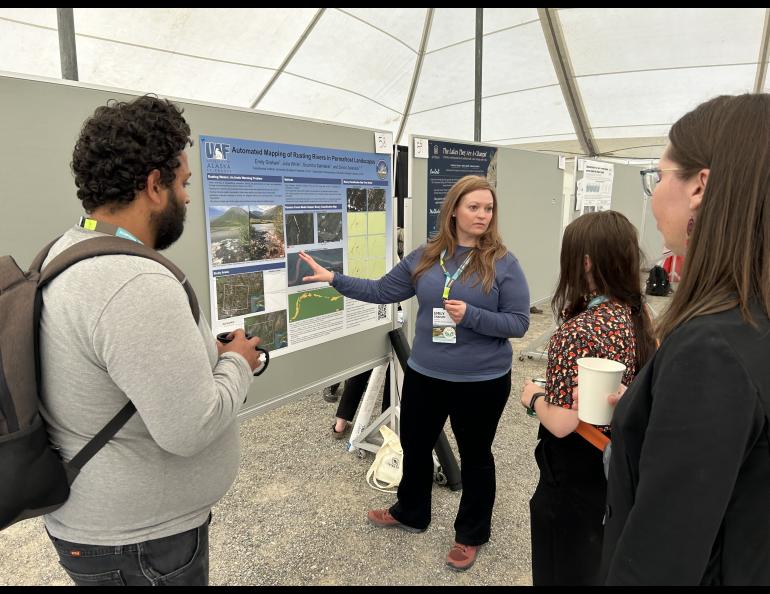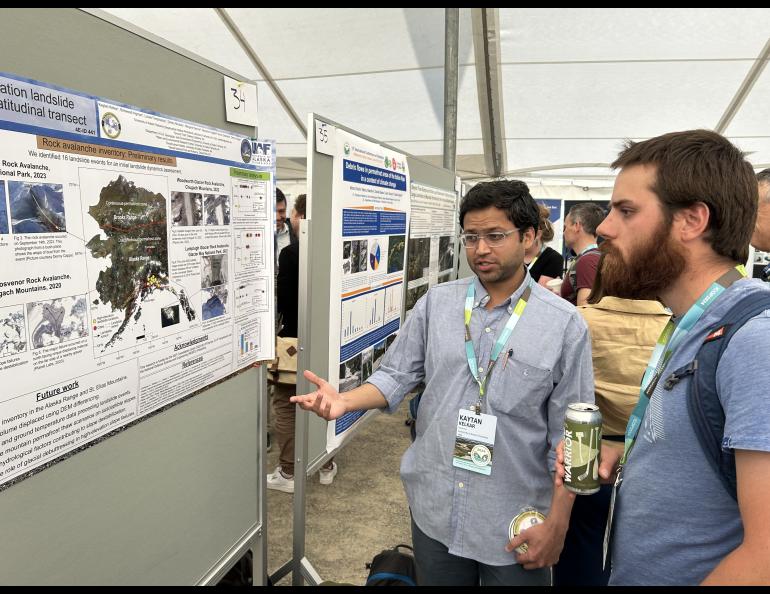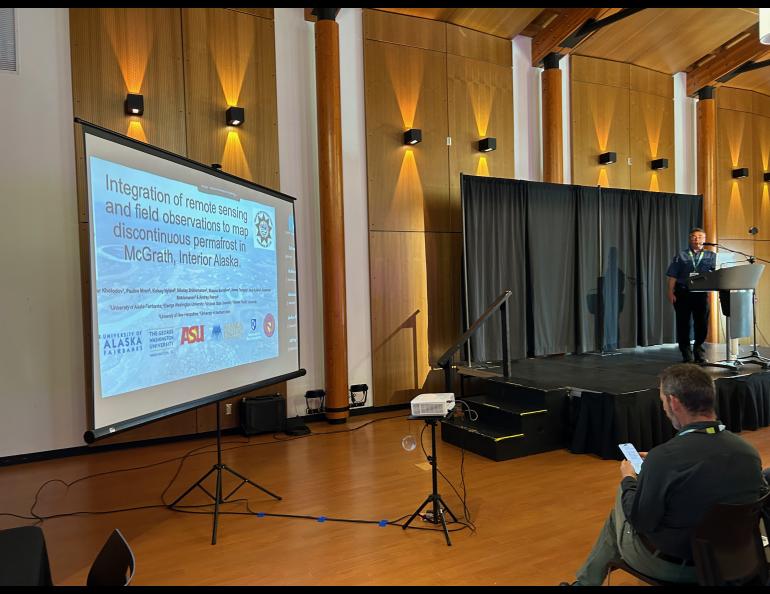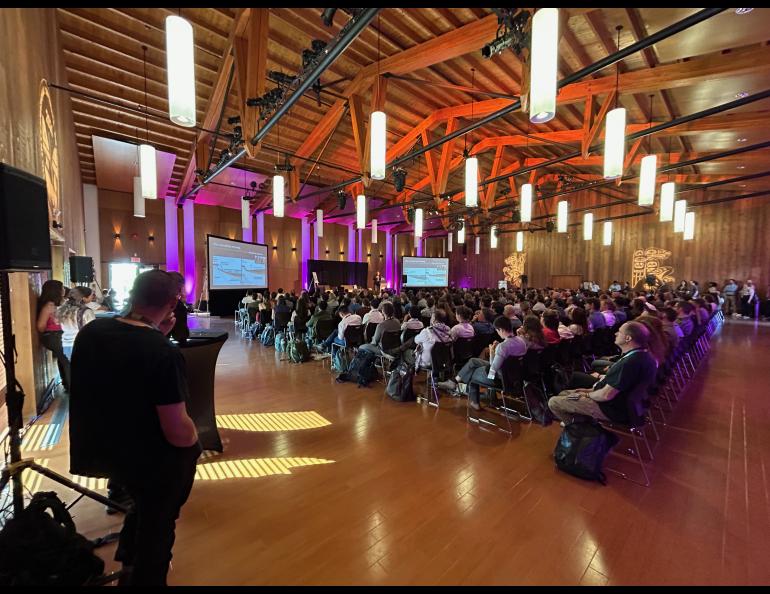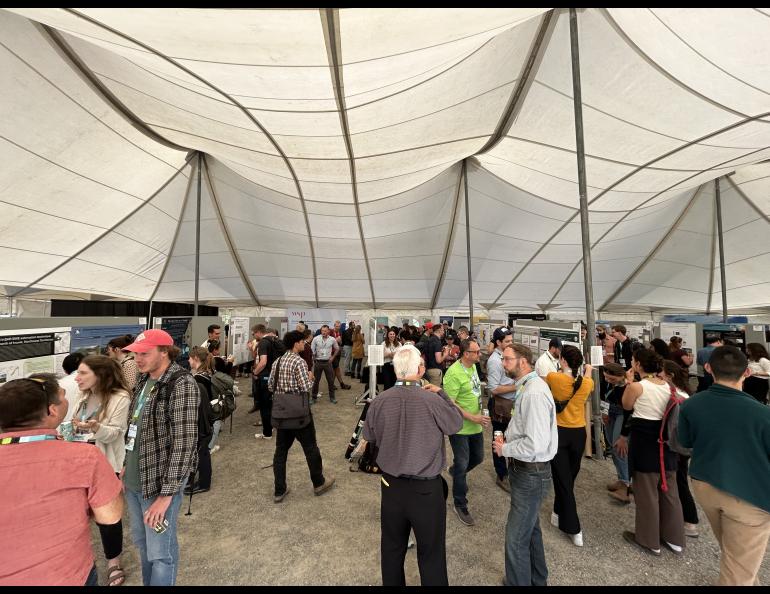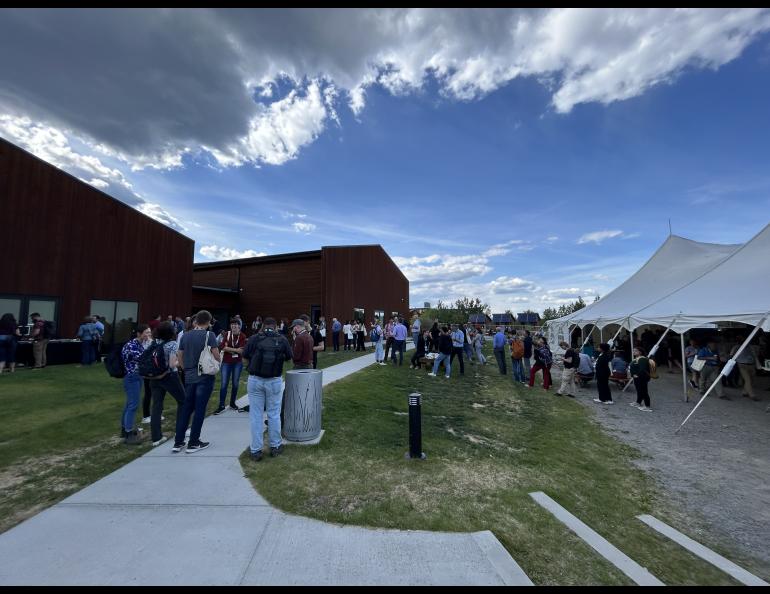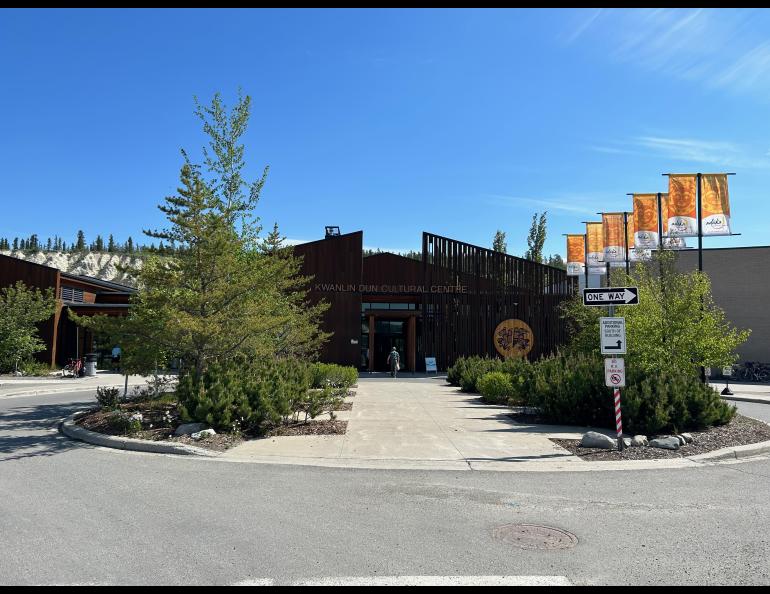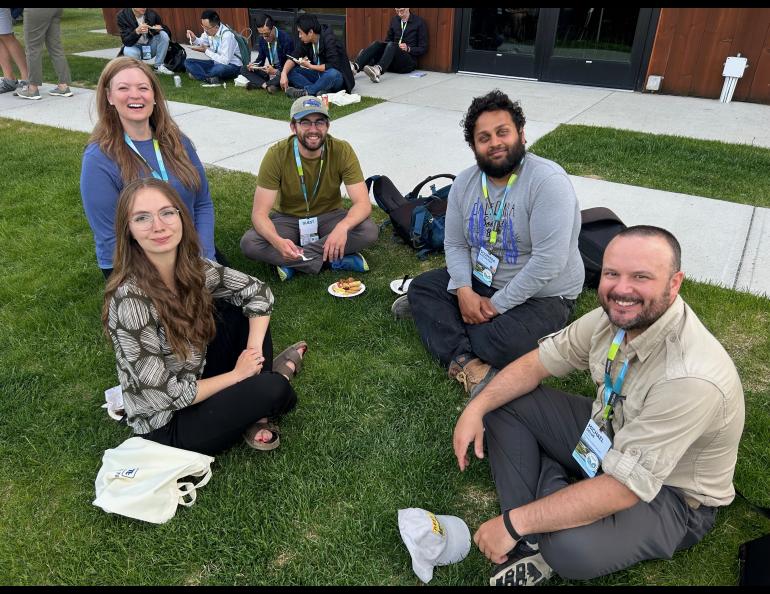Nearly two dozen University of Alaska Fairbanks researchers — faculty, technicians and students — are among the several hundred scientists at the International Conference on Permafrost this week in Whitehorse, Yukon.
Monday’s oral presentations featured four UAF scientists presenting work, three of them in a session titled “Remote sensing of permafrost processes.” That was one of five daylong sessions.
Those included Geophysical Institute Research Associate Professor Alexander Kholodov, Research Associate Professor Go Iwahana of the International Arctic Research Center, and Assistant Professor Simon Zwieback presenting for postdoctoral fellow Jie Chen. Zwieback is coauthor with Chen.
Geophysical Institute Research Associate Professor Sergey Marchenko presented work in a session titled “Hydrology of mountain permafrost.”
Kholodov was the first UAF researcher to present his work, which is about permafrost conditions around the central Alaska community of McGrath. Knowing the status of permafrost is important for community planning purposes, he said.
His research involved creation of an automated remote sensing method to determine the state of permafrost around McGrath, a small community on the Kuskokwim River in the southwest of Interior Alaska.
That method is based on using satellite data to identify vegetation characteristics such as canopy coverage and forest stand density, which affect the amount of snow reaching the ground. The depth of snow can affect the amount of heat reaching the permafrost.
Permafrost is defined in three categories: continuous, discontinuous and sporadic.
“We conclude that the area of the city of McGrath falls in the category of sporadic permafrost,” he said in his talk. “But, most important, we developed a new process of permafrost identification.”
An evening poster session included work of graduate students Emily Graham, Kaytan Kelkar and Olivia Hobgood. Additional poster sessions will be held today and Wednesday.
Most UAF presenters are from the Geophysical Institute, which includes a Snow, Ice and Permafrost Group of faculty and student researchers. Scientists from UAF’s Institute of Arctic Biology, International Arctic Research Center, Institute of Northern Engineering and College of Natural Science and Mathematics will also share their research.
The weeklong conference is hosted by the Canadian Permafrost Association.
“Given the importance of permafrost and its role in Earth’s climate, there are, unfortunately, not many permafrost-dedicated conferences in the world,” said Dmitry Nicolsky, UAF Geophysical Institute research associate professor, before heading to Whitehorse.
“Given the time span of several days, the ICOP provides plenty of opportunities to meet with our colleagues from different countries to gain knowledge about the health of permafrost on the planetary scale,” he said.
Christopher Burn, president of the International Permafrost Association, said it is important for northerners to understand the implications of continued climate heating.
“Many countries in the world will be affected by sea level rise as the Greenland Ice Sheet melts away and the same happens in parts of Antarctica,” said Burn, a geography professor at Carleton University in Ottawa. “Fewer will have a problem with permafrost, but for northerners and people who live in regions of high mountains, the consequences are already apparent and will only continue in one direction.”
Guy Doré, president of the Canadian Permafrost Association, said the conference is the perfect occasion for participants to get updated on permafrost science, engineering and management.
“Community leaders are trying to better understand and manage the risks related to permafrost degradation,” he said. “Scientists are trying to develop a better understanding of factors contributing to its degradation and on the impact of degrading permafrost.
“And engineers are trying to better understand the complex interaction between permafrost and structures and to develop low-impact construction practices and sustainable solutions for degrading foundations,” he said.
The International Conference on Permafrost is held every four years, though this is the first since the 2016 conference in Potsdam, Germany. The 2020 conference in China was canceled because of the COVID pandemic.
